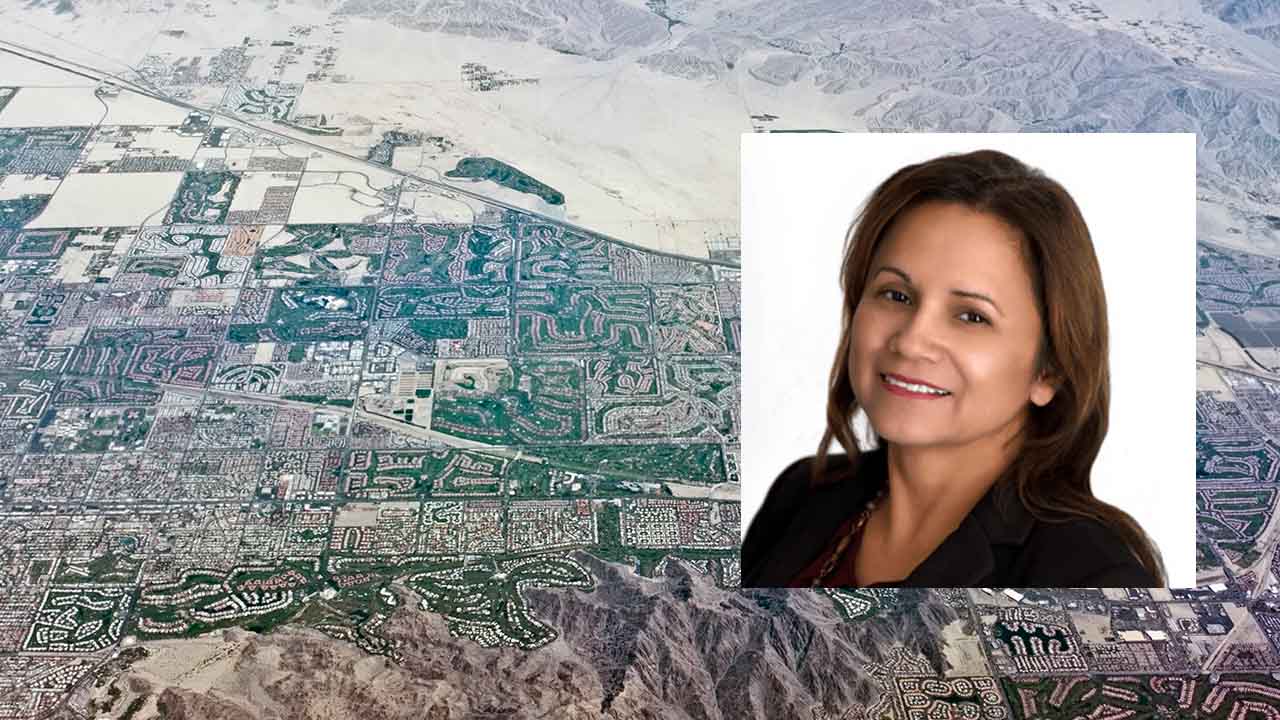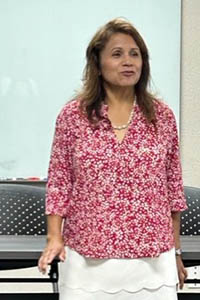
(Aerial Photo: Northwalker/Wikimedia; Additional photos courtesy of RAP Foundation)
Riverside County’s geography is vast, stretching from Orange County to the border with Arizona. Traveling from the County seat of Riverside to Blythe could take three hours, which isolates the Eastern portion of the County. That’s why, in 1992, Riverside County partnered with the Palm Springs Redevelopment Agency to create Regional Access Project (RAP) Foundation, Inc. to address the disparities residents face in that region.
“Our charge is to redistribute the funding resources to benefit the residents of this region in the areas of health, mental health and juvenile intervention,” said Leticia De Lara, RAP Foundation’s CEO. “Recognizing that it was harder for residents to be able to access services, we provide funding and we give out grants to nonprofits or other entities like the County or a school district that are addressing those three areas.”
The RAP Foundation is funded through a unique arrangement between the County of Riverside and the City of Palm Desert to redivert sales tax money generated in a particular region of the City. Instead of the funds going through the normal process, 100% of the sales tax (usually divided between the state, County, City, and special districts) generated in this designated area benefits RAP. That adds up to approximately $2 million annually to serve the residents from Palm Springs to Blythe.
Nonprofits are funded through various types of grants and sponsorships that range from $5,000-10,000. It also releases annual Request for Proposals (RFP) that can range from $20,000 to $150,000. “We identify the priorities and provide the funding to implement strategies to drive positive impact in the community,” explained De Lara.
Last year’s $1 million allocation to address mental health disparities is necessitating a deviation from RAP’s normal funding process. “What we’re proposing to do is actually not do an RFP, but the 24 organizations that received funding for this last one, we will give them the opportunity to apply for a year two grant to then demonstrate the impact that they had with the funding. We recognize that it takes a while to actually get a program up and running and that we want to determine whether there’s been an impact.”
Besides funding nonprofits working in focus areas, the RAP Foundation also provides capacity building services or technical assistance for regional nonprofits. “We provide funding to pay for consultants who can work one-on-one with a nonprofit or offer workshops with experts, speakers on topics that are benefiting the nonprofit communities and also through providing space,” said De Lara. “We have a facility here that we provide affordable offices or cubicle space for organizations.” Currently 25 nonprofits are set up at RAP Foundation’s Palm Desert location at very low cost and other nonprofits are able to use the meeting rooms free of charge during business hours.
 De Lara became the RAP Foundation’s CEO nine years ago, but her involvement with the organization started long before that. She served as the liaison to the RAP Foundation when she was chief of staff for Riverside County Supervisor Roy Wilson and continued in the same capacity with his successor, Supervisor John J. Benoit, after Wilson passed away. “So, during those 15 years combined, I worked with RAP. So, I understood a lot about the important role they had in improving peoples lives.”
De Lara became the RAP Foundation’s CEO nine years ago, but her involvement with the organization started long before that. She served as the liaison to the RAP Foundation when she was chief of staff for Riverside County Supervisor Roy Wilson and continued in the same capacity with his successor, Supervisor John J. Benoit, after Wilson passed away. “So, during those 15 years combined, I worked with RAP. So, I understood a lot about the important role they had in improving peoples lives.”
She added, “The fact that we use County dollars, that means it opens us up to a lot of accountability and that we need to be transparent in the funding decisions. So those skills that I learned through the work that I had before, it was very helpful to have knowledge of the County processes and ability to develop relationship with County leaders. I am proud of the relationships that I have developed over the years which have led to successful collaborations on mutual interest projects.”
Her drive to work with communities in need stems from her upbringing. De Lara is from a migrant farm working family based in in the Coachella Valley. The family traveled from the area to the Central Valley and as far north to the Pacific Northwest for work. “I was one of 12 and we all did the same thing, working alongside my parents, just work and make ends meet and finding housing wherever we could. I never really saw myself as being poor because I always had my family.” Education was a priority for her parents, so they ensured that we attended schools wherever we traveled to during the school session. Because of this, she was able to earn her bachelor’s and master’s degrees from California State University, San Bernardino.
De Lara continues to look for ways to help her community. “Before there was really just a focus more on the cash giving grants,” she said. “When I decided to come on board, I think that’s when the RAP Board made a greater commitment to invest in services to build the capacity of nonprofits to better serve their clients, to pursue grants to be able to expand our services.” They now have grantees outside of the Coachella Valley and are able to provide services throughout the County with those other grants.
“I’m very proud of the fact that we have other funders that are utilizing our capacity building services now because they recognize that we’re doing it and that there’s no need for them to be duplicating what we’re already doing. So they trust us to develop the financial sustainability of the organizations they themselves are funding.”
De Lara is a California Economic Summit Regional Host Committee member who will be participating in this year’s event on October 11-13 in Indian Wells. By attending this year’s Summit, you can learn about her work and the work being done in the to create an equitable California. Learn more and register here today!

